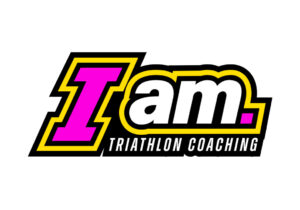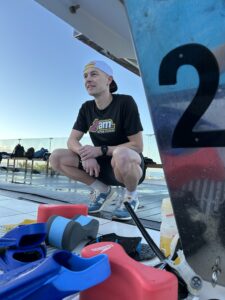When it comes to endurance sports, success is rarely accidental. Whether you’re racing your first sprint triathlon or qualifying for a world championship event, the difference between simply finishing and truly performing lies in the quality of coaching — and the relationship between coach and athlete. At I am. Triathlon Coaching, our philosophy is grounded in experience, science, and the human element. With over 20 years of coaching across all levels — from complete beginners to elite competitors — I’ve learned that effective coaching isn’t about shouting from the sidelines. It’s about partnership, purpose, and performance.
At I am. Triathlon Coaching, our philosophy is grounded in experience, science, and the human element. With over 20 years of coaching across all levels — from complete beginners to elite competitors — I’ve learned that effective coaching isn’t about shouting from the sidelines. It’s about partnership, purpose, and performance.
Coaching Beyond the Data
While power meters and heart rate zones are invaluable, the most powerful tools in endurance coaching are often more subtle:
Trust – The foundation of any coaching relationship. Without it, guidance feels hollow. With it, progress becomes exponential.
Listening Skills – Understanding where an athlete is at physically, mentally, and emotionally is vital. Coaching is a two-way conversation.
Asking the Right Questions – Not every problem needs an immediate answer. Often, it needs the right question to uncover the root cause.
Clear, Achievable Goal Setting – Ambition is vital, but realistic benchmarks keep motivation sustainable and progress measurable.
Ongoing Development – The learning never stops. Neither for the coach nor the athlete. Adaptability is key.
A Solution-Focused Mindset – Races rarely go perfectly. Preparing for adversity creates athletes who don’t just survive challenges — they thrive through them.
Sport Psychology – Performance starts in the mind. Confidence, calmness under pressure, and resilience can make or break a race day.
The Role of Cross-Training in Triathlon Success
Triathlon is a sport that demands balance, both physically and mentally. Integrating cross-training — from strength sessions to mobility work, trail running to open-water swim simulations — builds durability, prevents injury, and keeps training engaging.
It’s also a way to bridge gaps in fitness. For example, a swimmer with a weaker run background might use cycling drills or specific strength work to complement and accelerate development without overloading fragile systems. It’s not about doing more — it’s about doing smart.
Gear Matters — Especially on the Bike
Let’s face it: we all love free speed. Using the right equipment, particularly on the bike leg, can offer significant advantages without extra effort.
Whether it’s optimizing your position through a proper bike fit, dialing in tire pressure, investing in aero kit, or simply learning how to handle your bike in all conditions — these marginal gains add up. But the gear is only as good as the mental prep behind it.
Case Study: Ironman World Championship Qualification in Nice
Recently, one of the athletes I coach achieved a dream result — qualifying for the Ironman World Championships in Nice after a flawless race at Ironman Leeds.
What made this achievement special wasn’t just the result — it was how it happened.
This athlete fully embraced the core coaching philosophies we live by. He trusted the process, was actively engaged in planning, constantly asked meaningful questions, and refined his mental approach in every training block. His development wasn’t just physical — it was holistic.
During the race, he faced a mechanical issue on the bike — the kind of moment that could unravel even a well-prepared athlete. But instead of panic, he showed calm control. He assessed, adjusted, and stayed fully engaged with the race plan. The result?
• Fastest bike split.
• Fastest run split.
• World Champs qualification.
This wasn’t luck. It was the result of building a mindset, process, and skillset over months of collaborative coaching.
The Takeaway
Coaching endurance sports — and triathlon especially — is about so much more than training plans. It’s about building resilient, intelligent athletes who can make great decisions under pressure, trust the process, and consistently evolve.
Rhys Jones – Coach & Triathlete
Founder of I am. Triathlon Coaching, Rhys brings over 20 years of experience coaching everyone from first-time triathletes to Ironman World Championship qualifiers.
As an 8-time national triathlon champion, former elite-level racer, and recent qualifier for the 2025 Ironman 70.3 World Championships, he understands both sides of the sport — the racing and the coaching.
‘My approach is athlete-first: built on trust, communication, clear goal-setting, and a deep understanding of endurance performance — both physical and mental. Whether you’re chasing a PB or your first finish line, I coach with purpose, empathy, and a relentless focus on progress’.
Go to the I am. Triathlon Coaching Instagram page to find out more.